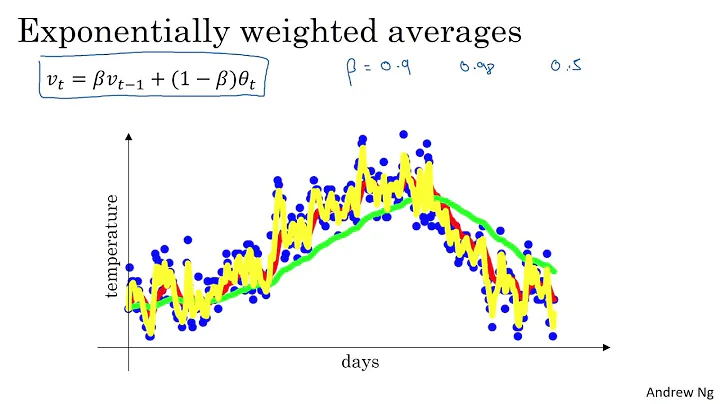Average timedelta in list
Solution 1
Btw, if you have a list of timedeltas or datetimes, why do you even do any math yourself?
datetimes = [ ... ]
# subtracting datetimes gives timedeltas
timedeltas = [datetimes[i-1]-datetimes[i] for i in range(1, len(datetimes))]
# giving datetime.timedelta(0) as the start value makes sum work on tds
average_timedelta = sum(timedeltas, datetime.timedelta(0)) / len(timedeltas)
Solution 2
Try this:
from itertools import izip
def average(items):
total = sum((next - last).seconds + (next - last).days * 86400
for next, last in izip(items[1:], items))
return total / (len(items) - 1)
In my opinion doing it like this is more readable. A comment for less mathematically inclined readers of your code might help to explain how your are calculating each delta. For what it's worth, one generator expression has the least (and I think least slow) opcode instructions of anything I looked at.
# The way in your question compiles to....
3 0 LOAD_CONST 1 (<code object <lambda> at 0xb7760ec0, file
"scratch.py", line 3>)
3 MAKE_FUNCTION 0
6 STORE_DEREF 1 (delta)
4 9 LOAD_GLOBAL 0 (sum)
12 LOAD_CLOSURE 0 (items)
15 LOAD_CLOSURE 1 (delta)
18 BUILD_TUPLE 2
21 LOAD_CONST 2 (<code object <genexpr> at 0xb77c0a40, file "scratch.py", line 4>)
24 MAKE_CLOSURE 0
27 LOAD_GLOBAL 1 (range)
30 LOAD_CONST 3 (1)
33 LOAD_GLOBAL 2 (len)
36 LOAD_DEREF 0 (items)
39 CALL_FUNCTION 1
42 CALL_FUNCTION 2
45 GET_ITER
46 CALL_FUNCTION 1
49 CALL_FUNCTION 1
52 STORE_FAST 1 (total)
5 55 LOAD_FAST 1 (total)
58 LOAD_GLOBAL 2 (len)
61 LOAD_DEREF 0 (items)
64 CALL_FUNCTION 1
67 LOAD_CONST 3 (1)
70 BINARY_SUBTRACT
71 BINARY_DIVIDE
72 STORE_FAST 2 (average)
75 LOAD_CONST 0 (None)
78 RETURN_VALUE
None
#
#doing it with just one generator expression and itertools...
4 0 LOAD_GLOBAL 0 (sum)
3 LOAD_CONST 1 (<code object <genexpr> at 0xb777eec0, file "scratch.py", line 4>)
6 MAKE_FUNCTION 0
5 9 LOAD_GLOBAL 1 (izip)
12 LOAD_FAST 0 (items)
15 LOAD_CONST 2 (1)
18 SLICE+1
19 LOAD_FAST 0 (items)
22 CALL_FUNCTION 2
25 GET_ITER
26 CALL_FUNCTION 1
29 CALL_FUNCTION 1
32 STORE_FAST 1 (total)
6 35 LOAD_FAST 1 (total)
38 LOAD_GLOBAL 2 (len)
41 LOAD_FAST 0 (items)
44 CALL_FUNCTION 1
47 LOAD_CONST 2 (1)
50 BINARY_SUBTRACT
51 BINARY_DIVIDE
52 RETURN_VALUE
None
In particular, dropping the lambda allows us to avoid making a closure, building a tuple and loading two closures. Five functions get called either way. Of course this sort of concern with performance is sort of ridiculous but it is nice to know what's going on under the hood. The most important thing is readability and I think that doing it this way scores high on that as well.
Related videos on Youtube
shinn
Updated on May 02, 2022Comments
-
shinn almost 2 years
I want to calculate the avarage timedelta between dates in a list. Although the following works well, I'm wondering if there's a smarter way?
delta = lambda last, next: (next - last).seconds + (next - last).days * 86400 total = sum(delta(items[i-1], items[i]) for i in range(1, len(items))) average = total / (len(items) - 1)-
aaronasterling over 13 yearsadding one more 0 to the end of 8640 would be a good start ;)
-
-
shinn over 13 yearsYeah, that's much better. Thanks!
-
aaronasterling over 13 years+1 Because neither OP nor I knew that was a possibility. datetime crap is even more boring than strings ;)
-
aaronasterling over 13 years@shinn, if you accept THC4k`s answer, then I can delete this one.
-
shinn over 13 yearsYou shouldn't delete it. I like the way with izip.
-
shinn over 13 yearsI'll take your way to calculate the average and aaronasterling's to get the deltas. Thanks =)
-
abukaj about 7 yearsIt is not very Pythonic to iterate over indices. I would go with:
[a - b for a, b in zip(datetimes[:-1], datetimes[1:])] -
sachleen over 6 yearsIn this example it should be
datetimes[i]-datetimes[i-1]

![Date time functionality in Python [2021]: rolling mean, time delta, and resampling, with Pandas](https://i.ytimg.com/vi/JcOBWMDdxw4/hq720.jpg?sqp=-oaymwEcCNAFEJQDSFXyq4qpAw4IARUAAIhCGAFwAcABBg==&rs=AOn4CLChzBgTuIXnKlqYij9_c69kNfKoEg)











